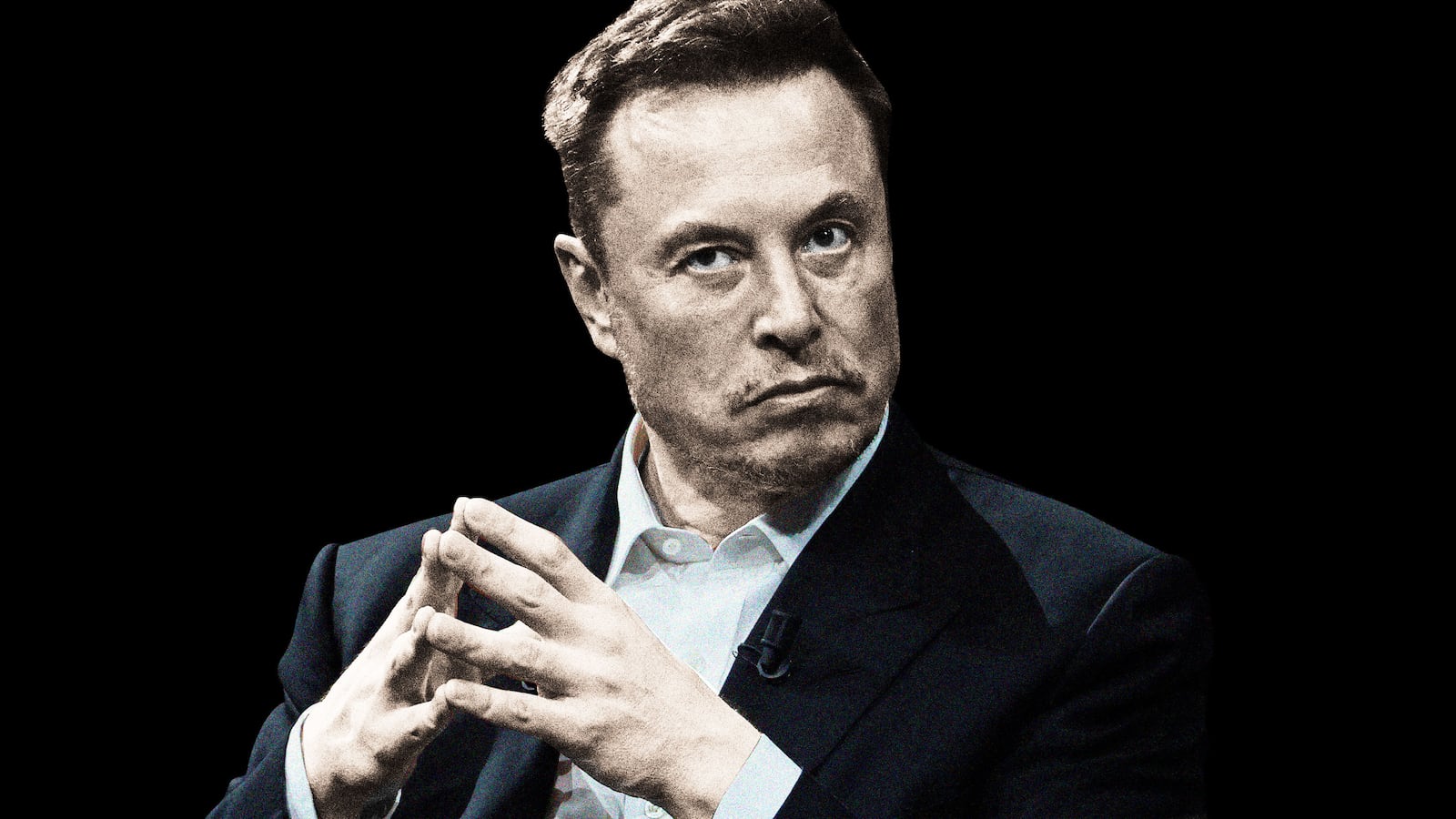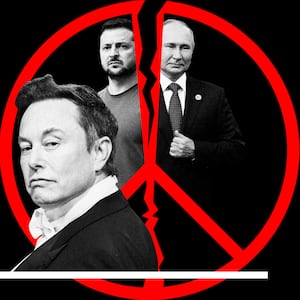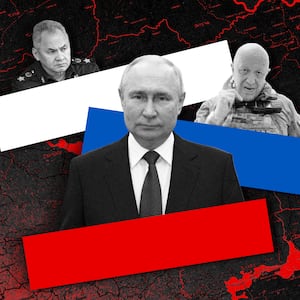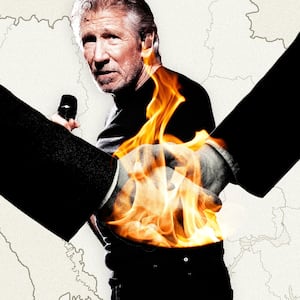Elon Musk’s company SpaceX is a U.S. defense contractor, with billions of dollars in Pentagon contracts. That makes his intervention to thwart Ukrainian military operations a U.S. national security concern, not only because America supports Ukraine’s self-defense against Russia’s invasion, but also because it suggests the U.S. military may have left itself open to similar disruptions.
Excerpts from biographer Walter Isaacson’s book, Elon Musk, show Musk denying Ukraine Starlink internet access off the coast of Crimea in Sept. 2022, causing Ukrainian sea drones to stop functioning. A private citizen thwarting an in-progress military operation like this is unprecedented.
As Isaacson presents Musk, the billionaire thinks of himself as a superhero trying to save the world. When Russia first invaded, this led him to donate Starlink terminals and services to Ukraine. SpaceX was able to handle Russian cyberattacks and jamming that had cut off Ukraine’s previous provider, Viasat, and the Ukrainian military found it useful as they fought off Russia’s original assault.
But Musk’s opinion changed as Ukraine, supported by aid from NATO countries, began trying to retake lost territory.
As Isaacson’s story got attention, Musk publicly defended his decision, explaining that Ukraine wanted Starlink coverage up to the Black Sea port of Sevastopol, in southwest Crimea, “the obvious intent being to sink most of the Russian fleet at anchor.”
And what’s the problem with that? According to international law, the United States, and the European Union—Crimea is Ukrainian territory, illegally occupied by Russia since 2014.

The head of an attack drone unit in the 68th Jaeger Brigade of the Ukrainian army rests a Starlink-connected phone on his body armor to communicate with other soldiers while piloting a drone in Luhansk region/
Heidi Levine for The Washington Post via Getty ImagesThe Russian military uses the peninsula as a staging ground for its effort to conquer southern Ukraine. Naval vessels are a military target, and Russia has used ships docked at Sevastopol to fire missiles at Ukrainian civilians, and block shipments of grain, risking food price spikes in Turkey, Egypt, and other countries. Ukraine trying to sink the Russian fleet is about as legitimate as military operations get.
Musk, however, says the problem is that Ukraine attacking near Crimea is escalation and risks World War III. Preventing that, Isaacson writes, is how Musk conceives of his savior role now.
It manifests as partially hindering Ukraine’s operations, and proposing a Russia-friendly “peace plan” in which Ukraine gives away land and the right to decide its own foreign relations in exchange for Russia stopping its attack and promising not to do it again. Russia’s ongoing invasion and occupation apparently doesn’t risk WWIII, only Ukraine’s resistance does, and Musk never explains why anyone should trust Russian leader Vladimir Putin’s word. This week, Musk argued that “both sides should agree to a truce” because “every day that passes, more Ukrainian and Russian youth die to gain and lose small pieces of land, with borders barely changing.”
At best, this is well-intentioned but ignorant.
Wars do not follow a predictable pace, nor an exciting one like a movie. A lack of dramatic line movements does not indicate stasis, as both sides continue trying to attrite each other’s forces. And a truce because the line barely changes would not only reward Russia’s aggression, it’s also inaccurate, as news from the war shows Ukraine breaking through some Russian defensive lines in Zaporizhia.
Worse, Musk appears to buy Russian propaganda.
He told Isaacson he’d recently spoken to Russia’s ambassador to the United States, who said that a Ukrainian attack on Crimea would lead to a nuclear strike. “Musk explained to me in great detail,” Isaacson writes, “the Russian laws and doctrines that decreed such a response.”
In Oct. 2022, after Musk disabled Starlink coverage beyond Crimea, in parts of Ukraine that Russia had occupied earlier that year, he had a private exchange with Ukraine’s Deputy Prime Minister Mykhailo Fedorov. Fedorov explained that “Starlink does not work in the liberated villages, which makes it impossible to restore the critical infrastructure of these territories” and asked Musk why. The SpaceX CEO responded that Russia “will destroy all infrastructure throughout Ukraine and push far past the current territories,” at which point NATO will intervene and “risk of WW3 becomes very high.”
The problem here is not worrying about the possibility of nuclear war. That’s always a top security concern, especially at times of heightened tension between nuclear powers. The U.S. has taken great care to minimize risks of nuclear escalation, keeping NATO forces out of the fight, refusing calls for a no-fly zone, insisting no Western weapons strike Russian territory, and limiting aid.
If anything, there’s a stronger case that America has been too cautious, since in 2023 various NATO countries gave Ukraine tanks and longer range missiles—and now okayed F-16 fighter jets—and Russia hasn’t done anything in response.
In late Oct. 2022, without Starlink, Ukrainian air and sea drones attacked Russia’s naval base in Sevastopol, damaging multiple ships. Russia didn’t respond to that with nuclear weapons. Or much of anything beyond what they were already doing.
They didn’t escalate in response to Ukraine’s subsequent attacks on Crimea, including on the Kerch bridge, a key supply route connecting the peninsula to Russia. Nor after later strikes inside Russia, such as a recent kamikaze drone attack on an airbase in Pskov, hundreds of miles from Ukraine’s border.
All Russia has done is keep attacking Ukraine, including airstrikes on civilians. They’re doing what they can, so threats to do more aren’t credible. And they’ve shown zero interest in widening the war.
The right response to Russia’s nuclear threats is deterrence. Russia attacked Ukraine—and before that, Georgia—neither of which are in NATO, but hasn’t attacked Estonia or another NATO member. Throughout the war, Russia has refrained from attacking weapons shipments on their way to Ukraine. They have a healthy fear of WWIII, same as us.
But Russia threatens nuclear war a lot, attempting to scare others into giving them what they want. They threaten nuclear war so much it’s become a joke.
Giving in to nuclear extortion encourages more of it. Whatever Russia’s words, its actions show these threats can be disregarded. A nuclear strike risks retaliation from the United States, plus shunning from China and India, both of which are more dangerous to Putin than failing to conquer Ukraine.
Whether Elon Musk is actually falling for this bluff or pretending to, he’s out of his depth, manipulable via appeals to ego. And that’s the generous interpretation, since other explanations have him working against American foreign policy and in favor of Russia’s on purpose.
National Security Concern
Congress should exercise its oversight powers and look into both SpaceX’s actions in Ukraine and the extent of American dependence on Musk’s company.
At minimum, it’s an information security risk.
Isaacson says Musk texted him about the Ukrainian sea drones headed to Crimea as he was trying to decide what to do. No one should be telling journalists about secret military operations as they’re happening.
Elon Musk especially shouldn’t be in position to, given his direct contact with foreign officials, and his apparent affinity for online trolls, including contributors to Russian state media outlet RT.
He’s free to associate with whomever he wants, and to express his opinions about the war (even if he doesn’t know what he’s talking about and has vast means to spread his thoughts widely).
But a defense contractor controlled by one volatile personality, who is at best ignorant of international power politics and susceptible to Russian propaganda, and does not respect that national security decisions are up to governments rather than him personally, is not someone the United States should consider a reliable business partner.
The ultimate problem here is not that Musk made bad decisions for bad reasons—though he did—it’s that no private individual should be in position to make decisions like that at all.
The only one who should be able to control equipment in American military operations is America.










